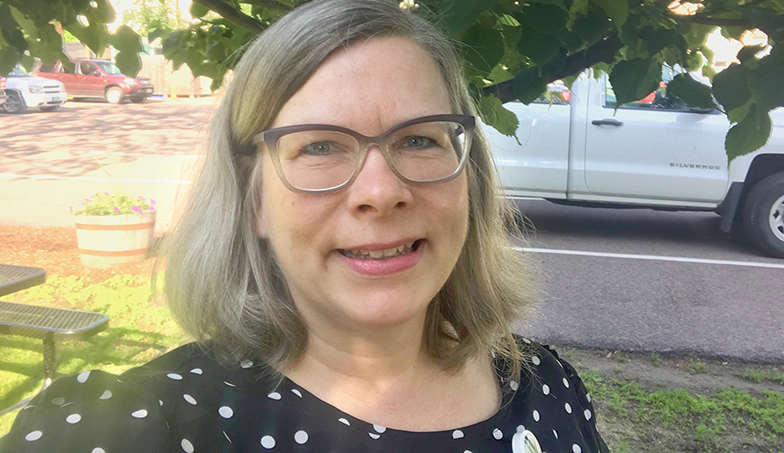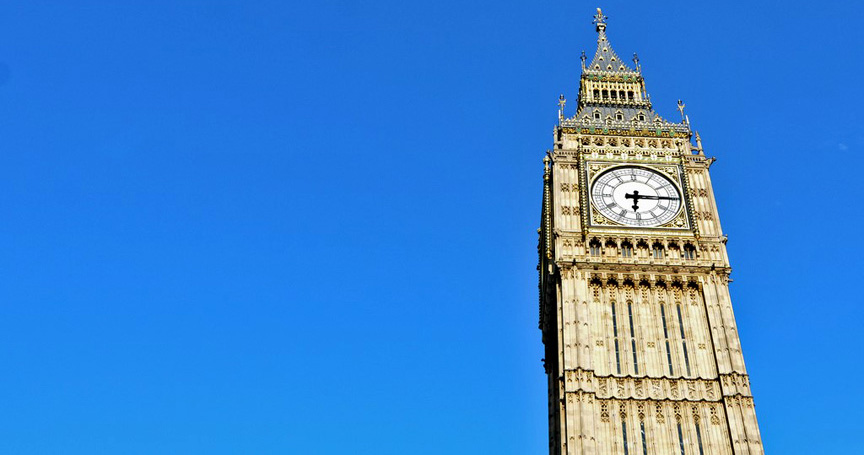To describe Bianca Mohn as driven is an understatement.
The Lancaster, PA, native graduated from UVM in May with a business degree and is now a student in the UVM Sustainable Entrepreneurship MBA program. As an undergraduate, she majored in business administration, international business and marketing, and minored in French. She was a student in the UVM Honors College, served as president of the UVM Marketing Club, became program director of La Maison Française, and studied abroad in China.

Now she’s learning how to help businesses establish meaningful goals that honor the triple bottom line: people, planet, and profit.
Mohn talks to us about corporate social sustainability and how she’s learned that there’s more than one way to be an effective leader.
What interests you most about corporate responsibility?
What I find most exciting are business models that create so-called “win-win” situations. For example, there are companies that take recycled cans to produce rolled aluminum for cars, consumer electronics, packaging, and are making the world a better place by reducing environmental impact, creating jobs, and using technology in progressive ways. I am fascinated by companies that create value for everyone involved and are using technology to benefit people and the planet.
What are some of the challenges you see in sustainable business/entrepreneurship?
Many companies want to be forces of good, but struggle to make the leap between having a few sustainability initiatives on the side, as opposed to integrating sustainability into their entire business strategies. In the future, companies that fail to embrace sustainability will be left behind for those who are doing more than just making a financial profit.
From my research on corporate social responsibility for my senior thesis at UVM, I found that many companies on their websites listed lofty aspirations for changing the world, but few highlighted specific goals and metrics to support these goals. This is another challenge for sustainable businesses: determining how to establish meaningful goals and metrics to convey to stakeholders that these sustainability initiatives are effective and lasting.
What advice would you give both undergraduates and young professionals who are looking to advance their career and become a leader or manager?
For undergraduates looking for leadership experience on campus, my advice is simply to show passion and enthusiasm. The way I became a student leader in the UVM Marketing Club and La Maison Française was by demonstrating that I cared. This meant always attending club meetings, offering to help with projects, bringing new ideas, and getting excited about the activities that we were doing. If you show up, bring positive energy, offer your time, and follow through, people will notice and will want to give you leadership positions.
For undergraduates and young professionals looking to advance their career and become a leader, I think it’s important to keep in mind that everyone can be a leader with experience and ongoing skill development. Sometimes people believe that you have to be the most extroverted, talkative, and authoritative person in the room to be the leader. That’s simply not the case.
Leadership comes in many different forms, and there isn’t one way to be a leader. From my perspective, the leaders I admire most are exceptional listeners, they are the first to admit that they don’t know something, and they are always looking for feedback and for opportunities to improve themselves and their projects. They have a ton of positive energy and drive, they care deeply about the people they work with, and they love to learn.
Why did you want to earn a sustainable entrepreneurship MBA rather than a traditional MBA?
I am a firm believer in the power of business to make the world a better place. I was attracted to the sustainable entrepreneurship MBA (SEMBA) because of its unique approach to business education by integrating sustainability into all of the courses. Unlike traditional MBA programs that sometimes feature one or two sustainability courses on the side of the core business courses, in SEMBA the economy, environment, and society are integrated into everything we study.
As we observe the world around us, we see that we are living in times of great change and that new models are needed to face widespread issues relating to poverty and environmental decline. I am in SEMBA to learn about these new business opportunities that provide value not just to customers and stockholders, but to the larger stakeholders, namely members of society and the natural environment.
You were involved in many clubs and organizations during your undergraduate years at UVM. How did you find time to be such an active and successful student?
It was definitely overwhelming at times to juggle so many things at once. It’s a tall order as a student to find the right balance between academics, clubs, friends, exercise, sleep, and relaxing. I learned very quickly the importance of time management. What worked best for me was having a detailed schedule and planning in advance to make sure that I could do it all. It’s easy to procrastinate, but for me, having a full schedule of classes, clubs, and jobs made me more self-disciplined and focused. Also, I made sure to have a strong support network in all of my clubs so that when I had academics to prioritize, I could ask others to step up and take charge.
How would you describe UVM?
UVM will give you everything you need — and more — to grow, learn, and discover who you are within a supportive and generous community. If you have an idea, someone will listen. If you need help, someone will gladly offer a hand. If you want to start something new, someone will encourage you. If you are open to it, UVM will change you by offering you a million opportunities for personal growth along the way.




